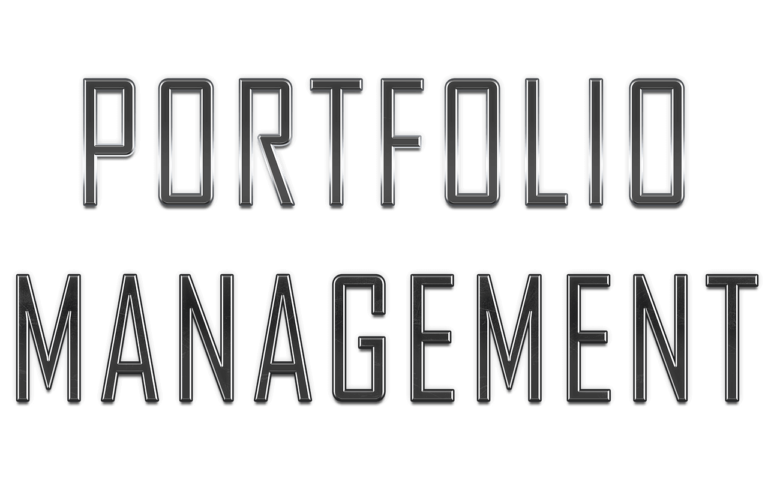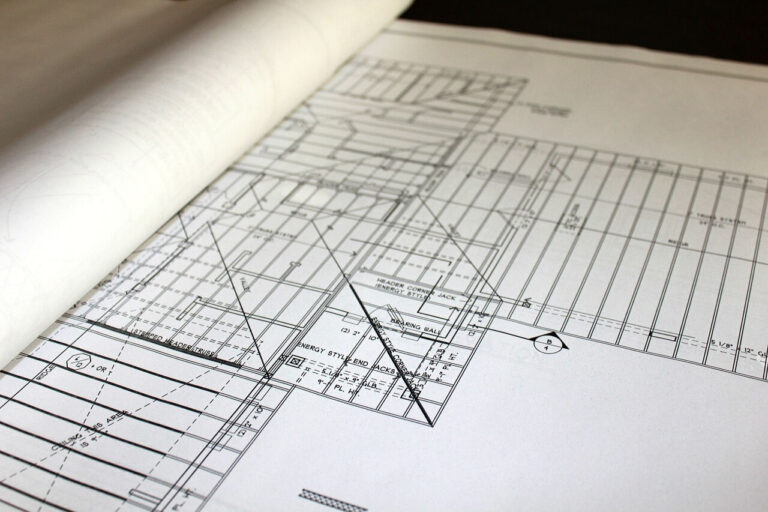How to Turn a Property into a Cash Cow
Learn how to turn your property into a cash cow with expert tips on property selection, financing, market understanding, and income maximization.
Introduction
A cash cow is a business or venture that requires minimal investment to start. It may grow slowly at first, but it eventually generates significant profit. Cash cows earn more income than what is needed to start and maintain them, making them ideal for new entrepreneurs.
The concept of buying a rundown property, fixing it up, and selling it for a profit sounds attractive, but it’s more complex than it appears. Flipping a house requires careful planning, a strong understanding of the real estate market, and the ability to oversee a renovation project from beginning to end.
In this post, we’ll explore how to turn a property into a cash cow, from finding the right property to estimating potential profits and managing the renovation process. Whether you’re an experienced investor or a beginner, this guide will help you get started.
Cash Cow Meaning
A cash cow is a product that holds a large share of the market in an industry with little or no growth. The term “cash cow” comes from the portfolio matrix, a tool used to assess the future potential of products. In this matrix, each section is labeled based on the traits of the products it includes.
Types of Cash Cow That Pay Extra Income
Multiple Income Streams
Popularly known as “multies,” this concept involves creating various sources of income that cover everything from residential to industrial sectors. One great thing about cash cows is that with the right knowledge and regular practice, it can become a straightforward and lucrative way to generate money.
When starting multiple income streams, it’s important to understand the process and protocols, which may include contacting local authorities if necessary. A key strategy is to ensure that the cash flow from these income streams is sufficient to cover any debt. For example, if a property owner decides to build an additional house, it should be intended for short-term use or rental to allow for frequent reselling. This approach helps reduce debt on the property while still generating profit.
By selling one of the properties after building two houses, you can pay off the debt on the first house and keep the profit from the second.
Student Housing for Single Occupants
Instead of letting extra rooms in your home go unused, consider turning them into assets by renting them out. Many people are in need of affordable housing, and renting out these spaces can increase your income. This approach not only helps with property management costs but also allows you to save more money. Ensure that you handle the rental agreements with legal backing and proper caution.
Earning from Granny Flats
You can earn extra money by renting out a granny flat or small apartment on your property that you don’t need. This allows you to profit from space that would otherwise be unused.
Commercial Cash Cows
These are ventures aimed at regular profit-making, whether fully commercial or partly investment-based. While they come with high risks, such as compliance with hygiene regulations and safety standards, the potential rewards can be substantial. To minimize risks, consider investing in pre-existing structures if you’re planning to build, as this can reduce potential challenges.
Car Parks
Car parks can be easy to manage if they’re located in commercial zones. Developers often overlook the need to structure commercial properties to save costs, but positioning car parks in high-traffic areas ensures consistent usage.
Warehousing
Businesses need storage facilities to keep their goods safe and accessible. While you can build a warehouse anywhere, it’s best to do so in high-demand areas like seaports and markets to ensure a steady income.
Rental Accommodation/Motels/Housing
Renting out accommodations like motels or houses is a classic cash cow that provides consistent cash flow. Whether it’s high-end or budget-friendly, this type of business can be profitable. Hiring an experienced property manager and having an online presence can boost your success.
Creating a website or listing on established platforms can lend credibility and attract more clients. Adding cleaning fees or other extra charges can also help increase profits without impacting your bottom line.
Leasing
Leasing is a business for risk-takers who can negotiate profitable deals. This involves acquiring property at a low lease price and then reselling it at a higher price. It’s mainly suited for commercial purposes in areas with large tracts of land, although it might not be ideal in certain locations like Australia. Done right, it can generate a significant income.
Wrapping
Wrapping is a strategy where an asset is purchased at a lower market price and then sold to someone who can’t afford it outright, often with the help of a financial institution. The buyer then pays back the loan with agreed interest. This allows financially limited but committed buyers, like entrepreneurs or individuals facing financial challenges, to acquire assets.
Industry-Specific Investment
Investing in specific industries is a profitable cash cow, especially in sectors like student accommodation or retirement funds. To maximize benefits, consider commercial areas involving natural resources, such as steel industries, mining, or transportation services.
READ ALSO: Commercial Real Estate Investing: Beginners Guide 2024
READ ALSO: FAQs On Real Estate Investing 2024
READ ALSO: Strategic Housing Investment Plan: All You Need to Know 2024
READ ALSO: 10 Benefits of Real Estate Investment in Nigeria 2024
Top Tips to Turn your Property into a Cash Cow
Selecting the Right Rental Property
Choosing the right rental property is crucial for the success of your investment. Think of it as picking the right partner, your choice can significantly impact your outcomes. Key factors to consider include location, property condition, and current market trends.
Financing Your Rental Property Investment
You’ll need to explore financing options if you don’t have enough cash to purchase a property outright. These might include mortgages, private lenders, or partnerships. Each option has its own set of benefits and risks, so it’s important to weigh them carefully.
For example, a mortgage allows you to leverage your investment, enabling you to purchase a property you might not afford otherwise. However, it requires regular payments, which can be a long-term commitment. Alternatively, private lenders might offer more flexibility but often come with higher interest rates. Partnerships, also known as real estate syndication, allow you to pool resources with others, but you’ll need to share both the profits and decision-making responsibilities.
Before selecting a financing method, consider your financial situation, investment goals, and risk tolerance. Consulting with a financial advisor or real estate professional can also help you make the best decision.
Understanding the Rental Market
Knowing the rental market is essential for success. It’s like navigating a boat—you need to be aware of the direction of the wind, currents, and any potential storms. In rental property investing, this means understanding rental demand, setting competitive prices, and learning how to attract and retain tenants.
To succeed, you must stay informed about the current demand for rental properties in your area. This includes knowing average rental prices for similar properties and any trends affecting future demand. Setting the right rental price is crucial; it should be competitive to attract tenants and high enough to cover expenses and generate profit.
Additionally, attracting and retaining tenants is vital to long-term success. This can be achieved by keeping your property in good condition, offering appealing amenities, and providing excellent customer service.
Managing Your Rental Property
Managing a rental property involves various tasks, including maintenance, tenant relations, and rent collection. If these responsibilities seem overwhelming, consider hiring a property management company.
They can handle the day-to-day operations, freeing you from the stress and workload. Property managers can manage everything from maintenance requests to tenant issues, rent collection, and finding new tenants. While there is a cost to hiring a management company, many property owners find the benefits outweigh the expenses. They can also provide expert advice to help maximize your rental income and maintain the property’s value.
Maximizing Your Rental Income
Turning your property into a cash cow involves implementing strategies like upgrading it, offering additional services, and minimizing vacancies. For example, adding amenities increases your rental income and makes your property more appealing to potential tenants.
Upgrading your property by installing energy-efficient appliances or updating kitchens and bathrooms can attract higher-paying tenants. Minimizing vacancies is also crucial in keeping your property well-maintained and responding promptly to tenant requests can encourage lease renewals and reduce turnover.
Tax Considerations in Rental Property Investment
Understanding your tax obligations is essential for managing a rental property investment. This includes knowing about property taxes and income tax on your rental income. Properly managing your taxes can save you money and prevent future issues. For high-income earners, holding properties in a limited company structure might offer greater tax flexibility and benefits, allowing the company to obtain its mortgages and manage its financial affairs independently.
Building a Rental Property Portfolio
You can expand your portfolio once you’re comfortable with your first rental property. This involves buying more properties and diversifying your investments. Having multiple rental properties can boost your income and reduce risk. It’s important to thoroughly research potential properties, considering factors like location, market demand, and potential rental income.
As your portfolio grows, you might explore different types of properties, such as single-family homes, multi-family buildings, or commercial spaces, each with its own challenges and rewards.
Continuously monitoring the property market and staying informed about changes in rental rates, housing trends, and local regulations will help you make smart investment decisions and maximize returns.
Building a successful rental property portfolio takes time, effort, and careful planning, but with the right approach, it can become a sustainable and profitable income source for years to come.
Frequently Asked Questions
What is the best strategy for a cash cow?
The skimming strategy works well for cash cows. The idea is to extract as much profit as possible without pouring in significant investments. To do this, the company should limit spending to the essentials needed to keep a strong market presence.
What are the disadvantages of Cash Cows?
Cash cows dominate the market but offer little room for growth. This is because they exist in a mature market with limited innovation and expansion opportunities. Despite this, they are profitable and need only a small investment to sustain their position.
What is the formula for cash cow price?
The cash cow’s price per share can be determined using the present value formula. By knowing the stock price, earnings per share (EPS), and EPS growth, you can calculate the present value of future earnings and divide it by the total number of shares to find the cash cow’s price per share.
Why is it called a cash cow?
The term “cash cow” is a metaphor likening it to a dairy cow on a farm, which provides a consistent source of income with minimal upkeep. In business, cash cows refer to products or services that have become market leaders, generating strong cash flows and a return on assets (ROA) that surpasses the rate of market growth.
What type of business is a cash cow?
In simple terms, the phrase “Cash Cow” refers to a product or service that consistently brings in positive cash flow. These “cash cows” are usually well-established and in the mature phase of the business cycle. Because of this, they offer limited growth potential and require little new investment.
Conclusion:
Turning a property into a cash cow involves strategic planning, careful market analysis, and effective property management. By selecting the right property, securing suitable financing, and understanding the rental market, you can set a strong foundation for success. Implementing strategies like property upgrades and tax management will further maximize your rental income.
Building a portfolio of rental properties takes time, but with the right approach, it can provide a stable and profitable source of income for the long term. Remember, the key to turning your property into a cash cow lies in consistent effort and informed decision-making.







